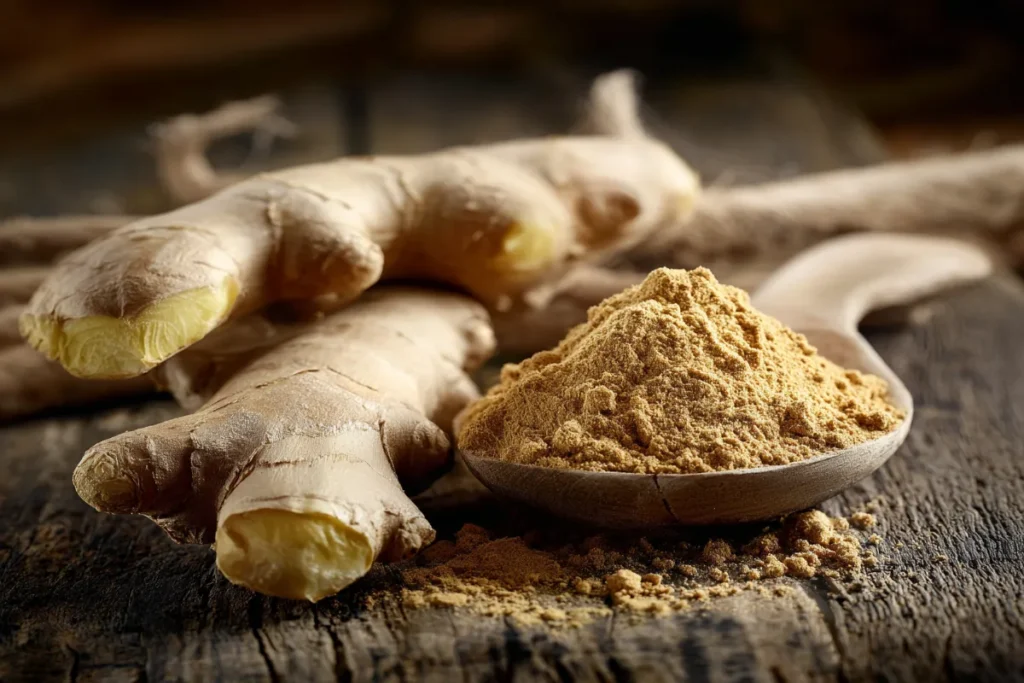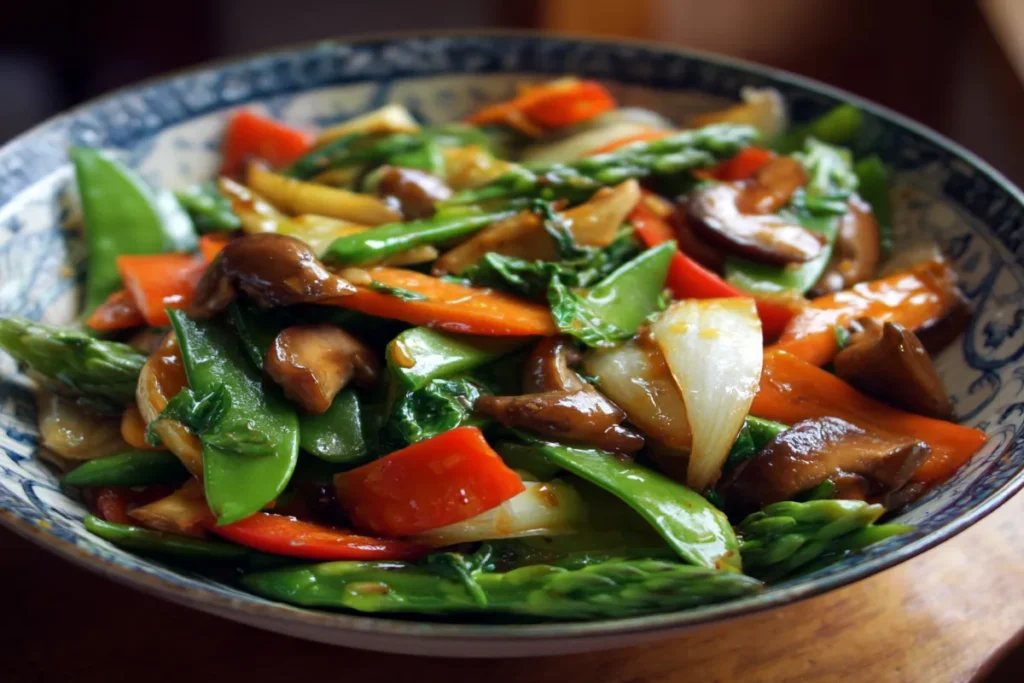Table of Contents
Introduction
Should you reach for the vibrant root or the dry spice jar? The choice between fresh ginger and its ground counterpart can completely shift the flavor of your dish.
These two forms offer distinct culinary advantages. Knowing when to use each will upgrade your meals and your cooking confidence. In this complete guide, we’ll cover flavor differences, recipe matches, substitutions, and expert tricks.
Love cooking with spices? Check out our guide on How to Store Spices for Maximum Freshness.
UNDERSTANDING GINGER
What Is Fresh Ginger?
The raw root of the Zingiber officinale plant is known for its peppery bite, fibrous texture, and citrusy aroma. Grated, sliced, or juiced, it’s a staple in Asian cuisine and wellness remedies.
What Is Ground Ginger?
Ground ginger comes from dried rhizomes, finely milled into a warm, mellow powder. It’s shelf-stable and perfect for baking, dry rubs, and spice blends.

FLAVOR COMPARISON: FRESH VS GROUND
Aroma & Intensity
- Fresh Ginger: Bright, zesty, slightly sweet with a peppery bite.
- Ground Ginger: More mellow, earthy, and warm; loses some top notes during drying.
Sweet vs Spicy Notes
Fresh ginger leans spicier and more aromatic, while ground ginger develops deeper, sweeter tones due to drying.
WHEN TO USE FRESH GINGER
Best Dishes for Fresh Ginger
- Stir-fries
- Marinades
- Smoothies
- Teas and tonics
- Asian soups (pho, miso, etc.)
Pro Tips for Handling Fresh Ginger
- Use a spoon to scrape the skin—less waste.
- Store peeled pieces in an airtight container in the freezer for months.
- Add at the beginning of cooking to mellow the spice or at the end for a bolder kick.
🔗 Related: How to Prep and Store Fresh Ginger
WHEN TO USE GROUND GINGER
Best Recipes for Ground Ginger
- Gingerbread cookies
- Pumpkin pie spice
- Carrot cake
- Chili & curry spice blends
- Mulled wine or cider
Storage and Shelf Life
Store ground ginger in a cool, dark place in an airtight container. It keeps its potency for up to 1 year. Avoid storing above the stove.
🛒 Check out Our Favorite Ground Spices
CONVERSION TIPS: FRESH VS GROUND
Substitution Chart
| Fresh Ginger | Ground Ginger |
|---|---|
| 1 tablespoon grated | ¼ teaspoon |
| 1 inch piece | ½ teaspoon |
| 2 teaspoons minced | ⅓ teaspoon |
Ground ginger is 3–4x stronger in flavor per volume than fresh.
Flavor Balance Hacks
- When subbing ground for fresh, reduce cooking time slightly.
- Add a splash of lemon juice to mimic fresh ginger’s zing.
HEALTH BENEFITS: FRESH VS GROUND
Nutrient Breakdown
| Nutrient | Fresh Ginger | Ground Ginger |
|---|---|---|
| Gingerol | High | Converted to Shogaol |
| Fiber | Moderate | Low |
| Antioxidants | Present | Concentrated |
Best Use for Medicinal Benefits
- Fresh ginger is better for nausea and digestion.
- Ground ginger works well for anti-inflammatory purposes in long-term use.

CULINARY USES BY CUISINE
Asian Dishes
Fresh ginger is essential in:
- Thai curries
- Chinese stir-fries
- Japanese soups
Ground ginger is typically found in Indian spice blends like garam masala.
Baking & Desserts
Ground ginger is unbeatable in:
- Molasses cookies
- Cakes
- Muffins
- Holiday spice rubs
Fresh ginger works great in syrups, glazes, and certain frostings.
COMMON MISTAKES TO AVOID
Overusing Ground Ginger
Using more than 1 teaspoon in most recipes will overpower the dish. Always taste-test!
Skipping Fresh Ginger’s Prep
Failing to peel fresh ginger can result in bitter or woody bites in your dish.
🔗 Related: 5 Common Cooking Mistakes with Herbs & Spices
FAQ
Is it better to use fresh ginger or ground ginger?
It depends on the recipe. Use fresh ginger for stir-fries, teas, and marinades. Use ground ginger for baking or dry spice blends.
When to use ground ginger?
Ground ginger is ideal for baking, spice rubs, and recipes needing long simmering times where subtle warmth is needed over zesty punch.
How much powdered ginger should I use instead of fresh?
Use ¼ to ½ teaspoon of ground ginger for every tablespoon of fresh grated ginger.
Does ginger powder taste the same as fresh ginger?
No. While both come from the same root, fresh ginger has a citrusy heat and powdered ginger has a deeper, sweeter warmth.

CONCLUSION & FINAL THOUGHTS
Understanding the balance between fresh and ground ginger can make a real difference in the flavor, aroma, and outcome of your recipes. Next time you’re cooking, refer back to this guide to confidently choose the right ginger.

